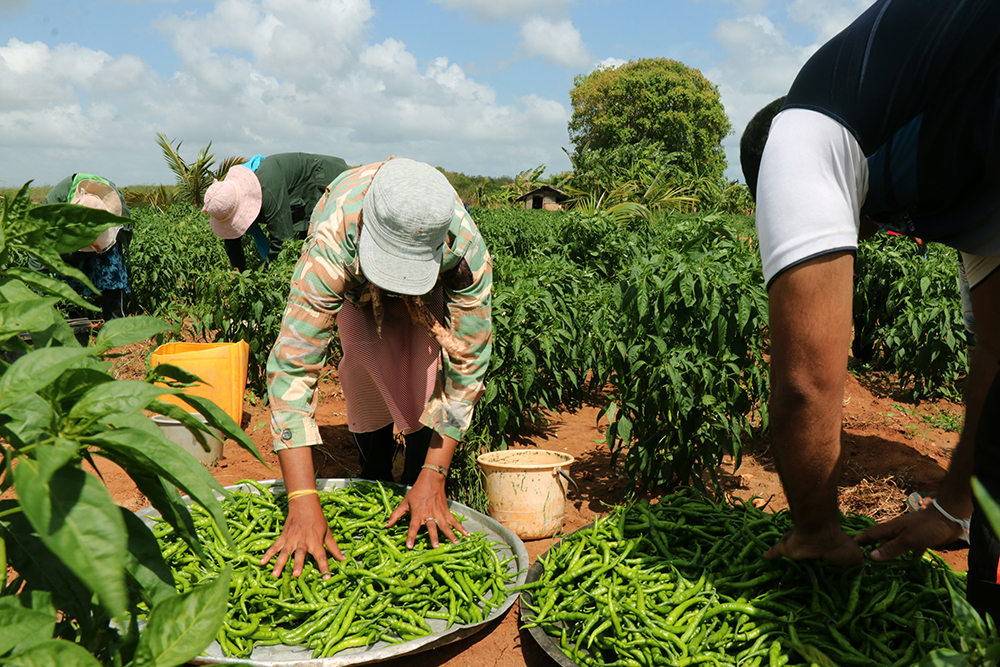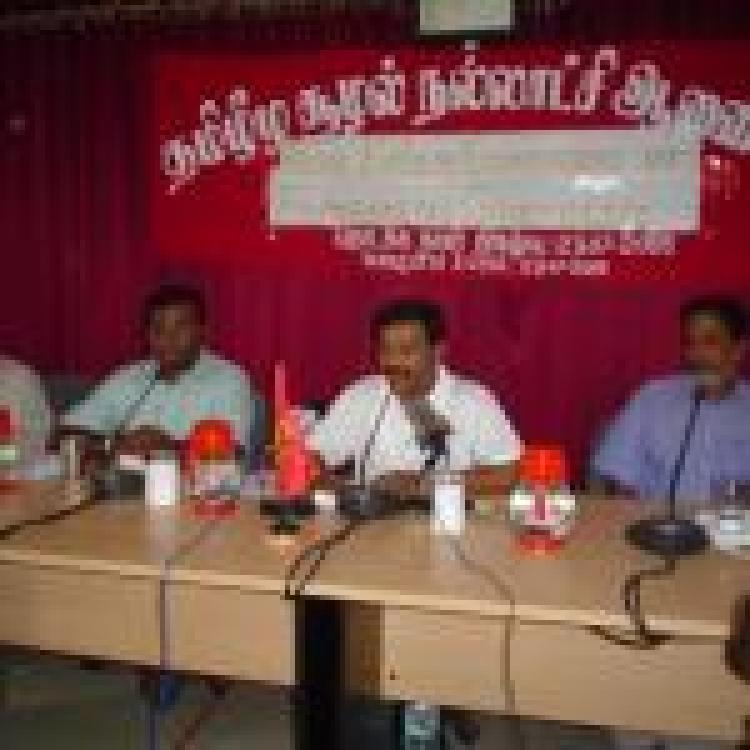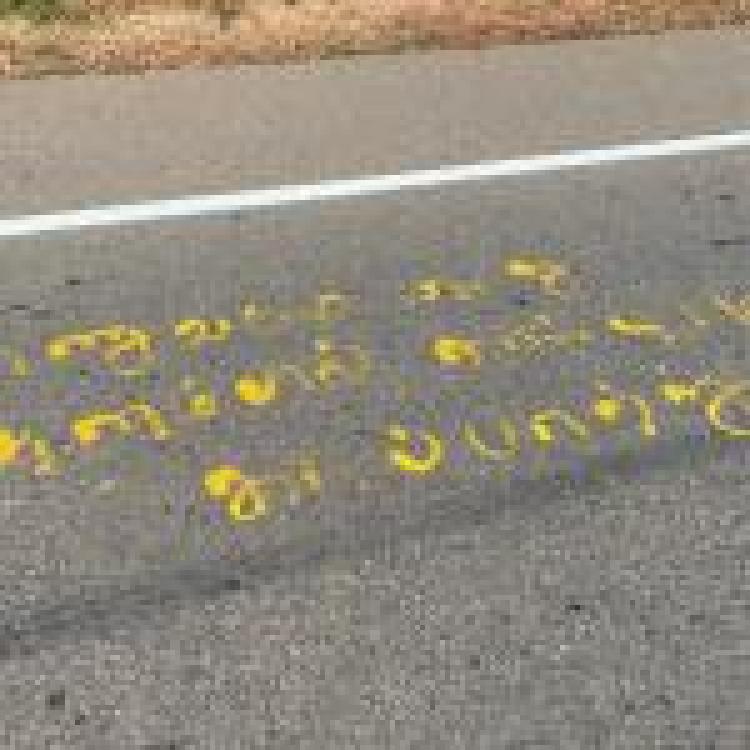File photo: Military-owned agricultural farm, Jaffna 2021
British diplomats have expressed their willingness to provide the necessary technical and practical support to help Sri Lanka implement its 'Climate Prosperity Plan', despite rampant militarisation.
Speaking at a discussion held last week, the Deputy High Commissioner of Great Britain to Sri Lanka, Lisa Whanstall told the President's Senior Adviser on Climate Change, Ruwan Wijewardene, that they appreciate the efforts taken by Sri Lanka to address Climate Change, the Presidents Media division reports.
Mrs Whanstall also stated that she will provide the necessary support for the International University on Climate Change, which is planned to be built on the instructions of President Ranil Wickremesinghe.
Furthermore, the Deputy British High Commissioner praised Sri Lanka’s program for renewable energy.
Mr. Ruwan Wijewardene presented the information about President Ranil Wickremesinghe’s upcoming programs regarding climate change and stated that the Act on Climate Change would be submitted to Parliament shortly.
In addition, Mr. Wijewardene said that a climate change office will be established in Sri Lanka to investigate climate change in the region and that the necessary solutions to address climate change that may occur will be developed.
Greenwashing Genocide?
Sri Lanka has previously used its 'green pledges' and 'climate-orientated programmes to engage in a publicity offensive in an effort engage the international community.
Last year accused war criminal Rajapaksa attended COP26 as a self-professed leader on issues of climate change and adaptation, especially in relation to a global compact for nitrogen reduction titled the Colombo Declaration. Under the guise of nitrogen reduction, he introduced his disastrous fertiliser policy which stopped all imports, which in reality was passed to reduce the pressure on foreign reserves as Sri Lanka headed to bankruptcy.
Despite a change in President, Sri Lanka still remains a militarised state. The government has completely militarised the Tamil-dominated north and east of Sri Lanka, where in some areas there is roughly one soldier for every two civilians.
The military is involved in all aspects of life in the Northeast and has faced years of protest from the Tamil community calling for its removal. The sheer size of the Sri Lankan military is staggering; in 2018, the World Bank estimated there were 317,000 service personnel in the country, twice the size of the UK’s regular forces. The presence of the military and deliberate underfunding of the Northeast has left the local population unable to adapt to the ongoing impacts of climate change. In recent years the military has also been accused of facilitating illegal deforestation across the Northeast.
Forests and deforestation have created contention in the Tamil homeland, particularly since the end of the armed conflict. Local opposition to deforestation has been mounting in recent months and years, as residents of rural parts of the North-East see vast tracts of forest disappearing around them. In most impacted areas, locals have been able to easily identify the connection between deforestation and the Sri Lankan state, condemning both legal avenues which see forests cut down as a precedent to land sales, and highlighting the complicity of some state agencies in illegal deforestation, including the arms of the Sri Lankan military, village development authorities and even the forest department itself.
As the impacts of climate change become more apparent, it is the occupied Tamil homeland which bares the brunt. Earlier this week, Roughly 600 cattle died due to cold weather in Jaffna, Mullaitivu and Kilinochchi, as temperatures have dropped as low as 17 degrees in the past few days.
For years Tamil farmers have faced difficulties in sustaining their livestock due to inadequate provisions from the government, which often left them resettled without adequate grazing land. Instead, large portions of this land have been handed off to Sri Lanka’s military, which has increasingly engaged in agriculture and has undermined local businesses by selling produce grown on that land back to locals below market rates.
The military has also usurped tens of thousands of acres of land on the island to establish army and navy bases, despite the war ending 13 years ago.
Read more here




